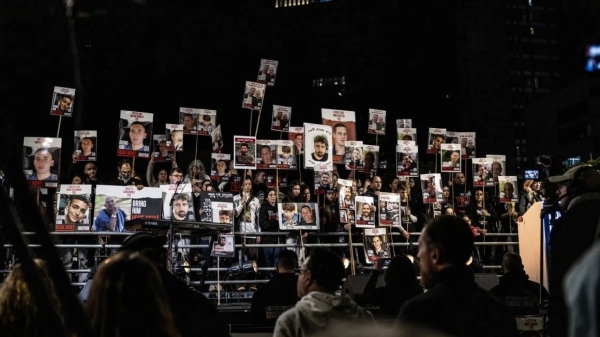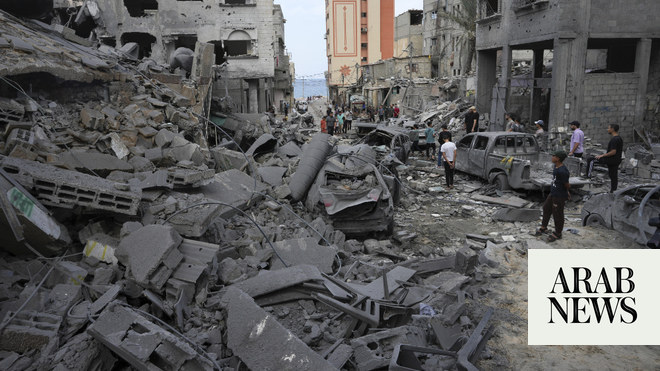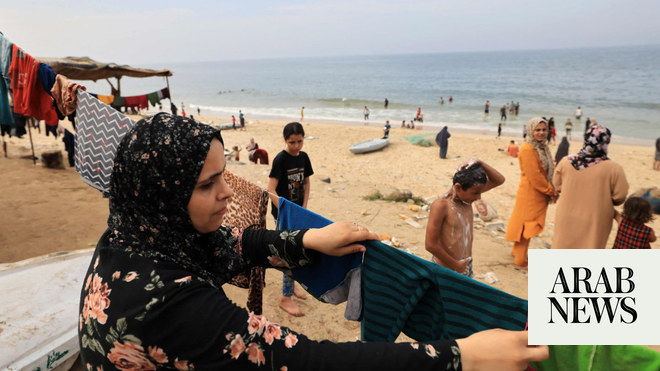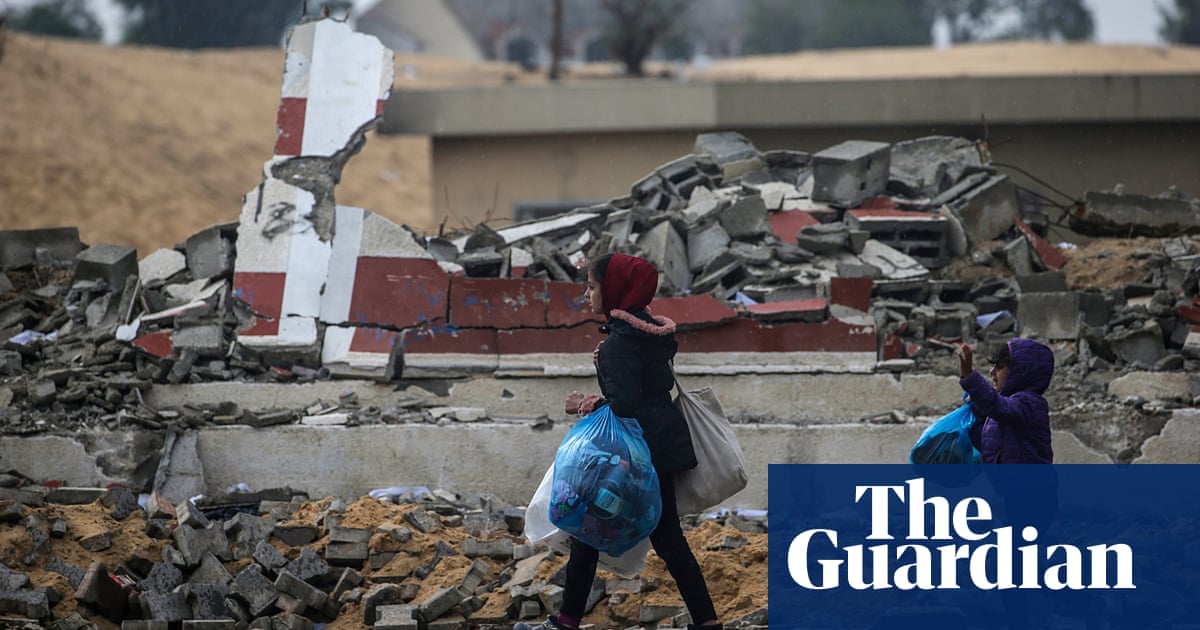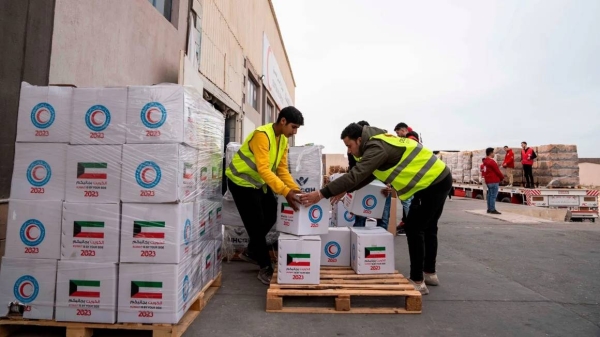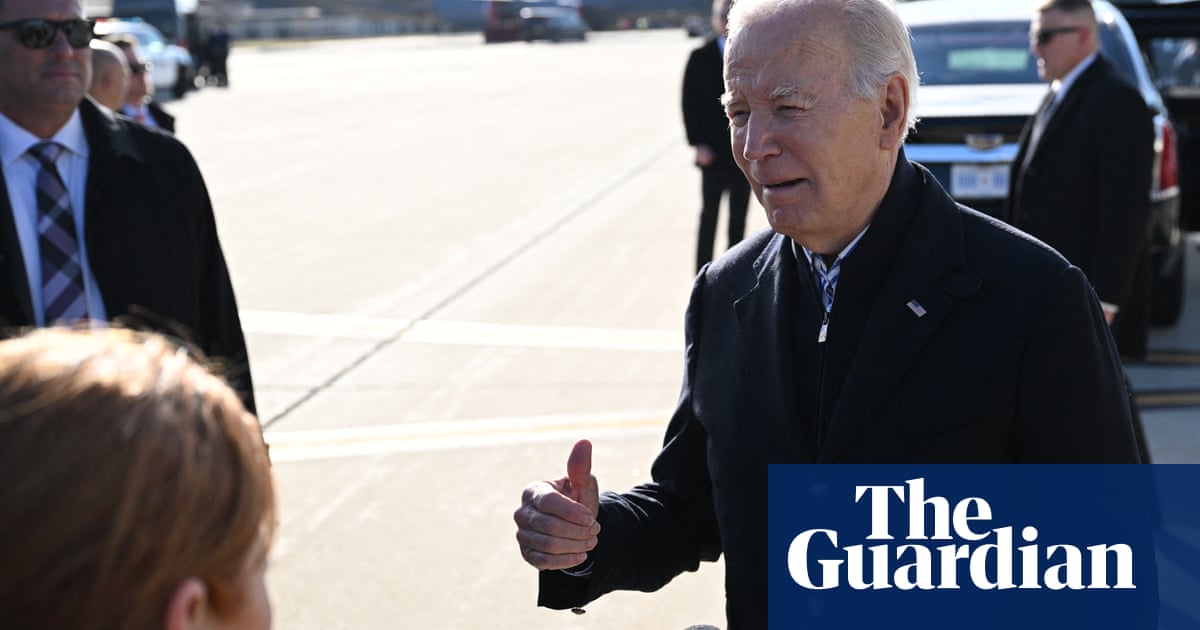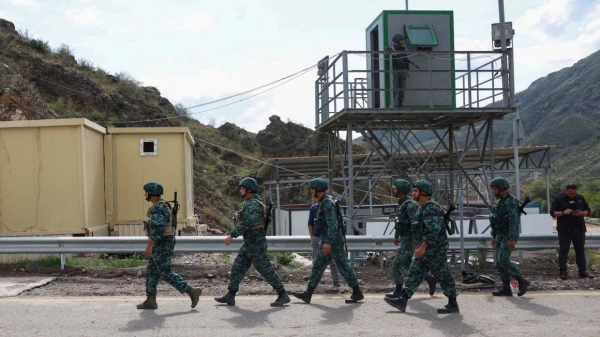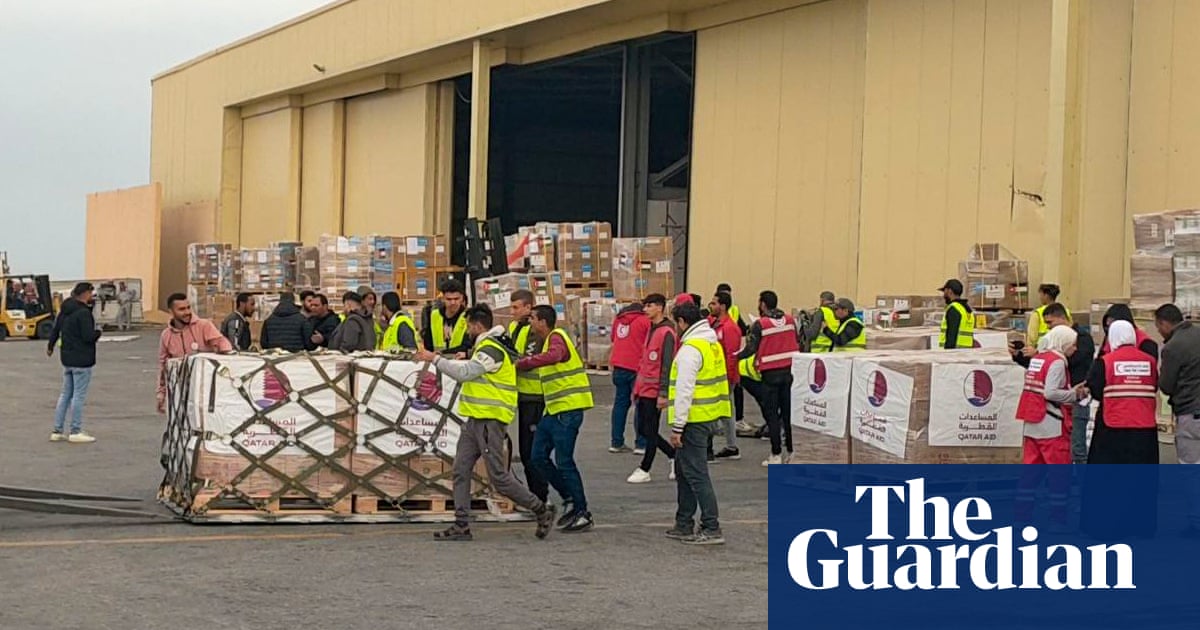
A shipment of medicine for Israeli hostages and Palestinian civilians has arrived in Egypt on its way to Gaza under a deal mediated by Qatar and France, as fighting continues across much of the territory after a deadly night of bombardments.
The agreement marks the first significant progress in indirect talks between Israel and Hamas since December, when a short-lived ceasefire collapsed.
In a statement to the official Qatar news agency, Doha on Tuesday announced a deal “between Israel and [Hamas], where medicine along with other humanitarian aid is to be delivered to civilians in Gaza … in exchange for delivering medication needed for Israeli captives in Gaza”.
Hamas militants took about 250 people hostage during the 7 October attacks that prompted the conflict. About 132 are still in Gaza, with at least 27 of them believed to have been killed.
The fate of those remaining in captivity has gripped Israeli society, while a broader humanitarian crisis in the besieged territory marked by the threat of famine and disease has fuelled international calls for a ceasefire.
Despite the deal, there appeared to be little relief for civilians in Gaza as the Israeli offensive continued. Though airstrikes and bombardment are reportedly less intense than weeks ago, in recent days there has been intense fighting in the north and continued attacks across the territory.
The Palestinian health ministry in Ramallah reported early on Wednesday that another 81 people were killed in overnight strikes in Gaza, while a military field hospital set up by the Jordanian army in the southern city of Khan Younis was reportedly badly damaged by Israeli shelling in its vicinity.
More than 1,200 people were killed in the 7 October attacks by Hamas in Israel, most of them civilians. Israel’s offensive has killed at least 24,285 people, mostly women and children, according to Palestinian authorities.
A Hamas spokesperson claimed that for every box of medicine supplied by Qatar for the hostages, 1,000 boxes would be supplied to the people of Gaza, though gave no details of how such quantities would be sourced or delivered.
Medical supplies in Gaza are almost totally exhausted, with critical shortages of insulin, anaesthetics, antibiotics and any other treatments, doctors and medical officials in the territory say. According to the World Health Organization, only 15 out of Gaza’s 36 hospitals are even partially functional; nine in the south and six in the north.
The military hospital hit on Wednesday is one of two that Jordan’s armed forces run in Gaza. A hospital staff member was injured and would be flown back to Jordan for treatment, while a patient was hit with shrapnel, the Jordanian army said in a statement, adding that the government would take all the measures necessary “as a result of the aggression”.
There was no immediate comment from the Israeli military, which has been forced to repeatedly deny that it targets medical facilities. It accuses Hamas of systematically using hospitals and other civilian infrastructure as bases and munitions stores.
The office of the Israeli prime minister, Benjamin Netanyahu, confirmed the deal for the medicines, which many hope will lead to a wider agreement. During a seven-day ceasefire in November, half the hostages abducted from Gaza by Hamas were freed in return for 240 Palestinian prisoners held in Israeli jails.
The US national security council spokesperson John Kirby said on Tuesday he was hopeful that Qatar-brokered talks could lead to another such deal “soon”.
The condition of hostages with complex medical conditions, or simply lacking essential items such as glasses, has been repeatedly highlighted by relatives and supporters in Israel.
Forty-five hostages are expected to receive medication under the agreement, according to the French presidency. After the drugs arrived at a hospital in the southern Gaza border town of Rafah on Wednesday, it said, they would be received by the International Committee of the Red Cross, divided into batches and immediately transferred to the hostages.
The deliveries would go on for three months, and were coordinated by the French foreign ministry’s crisis centre, which bought the drugs and sent them to Doha on Saturday by diplomatic pouch, the centre’s director, Philippe Lalliot, said
The UN says the war has displaced about 85% of Gaza’s 2.4 million people, many of whom have been forced to crowd into shelters and struggle to get food, water, fuel and medical care.
Philippe Lazzarini, the commissioner general of the United Nations Relief and Works Agency for Palestine Refugees (UNRWA), said that while more trucks loaded with aid were reaching Gaza, supply remained insufficient to reverse the deteriorating humanitarian situation there.
“If you have the political will you can make it happen. The north [of Gaza] is a pocket of humanitarian catastrophe,” Lazzarini, who has just spent three days in Gaza, told reporters in Jerusalem.
Dozens of rockets have been fired into southern Israel by Hamas in recent days, underlining the challenge still facing Israeli military forces as they advance through the territory.
Just before midnight on Tuesday, witnesses reported strikes on the Nasser hospital in Khan Younis, sparking panic among the hundreds of displaced people seeking shelter there. Earlier in the day, residents of the city sifted through the rubble from strikes as trucks and carts stacked high with displaced families’ possessions rolled down the street.
“You can see the destruction. This room was inhabited by people, this one was inhabited by 20 children, women and men, and the same thing goes for the neighbouring houses in the whole camp,” said one resident, Mohamad Ramadan, pointing out a destroyed home where he said several people had been killed.
At the weekend, Netanyahu told Israelis that the war would continue until there was “total victory” and Hamas had been “eliminated” and the hostages freed. Analysts have questioned how these aims can be reconciled.
On Monday, Hamas released a video announcing the deaths of two Israeli hostages and claimed they were killed by Israeli airstrikes. The video showed a female hostage named in Israeli media as Noa Argamani, 26, speaking under duress, revealing that two men she was held captive with had been killed. It was not clear when or where the video was filmed and there was no independent confirmation of Hamas’s claims. Israel says at least 25 hostages have died during the war.
In Tel Aviv, anti-war protesters scuffled with police on Tuesday night as some held up signs reading “end the siege” and “stop the genocide”.
“The occupation leads to bloodshed, and it continues incessantly. The children growing up now in Gaza are the ones who will confront us in a few years,” one protester, Chava Lerman, said.
Polls show that such views are held only by a tiny minority in Israel and that a substantial majority back the war against Hamas, though many are critical of Netanyahu.




